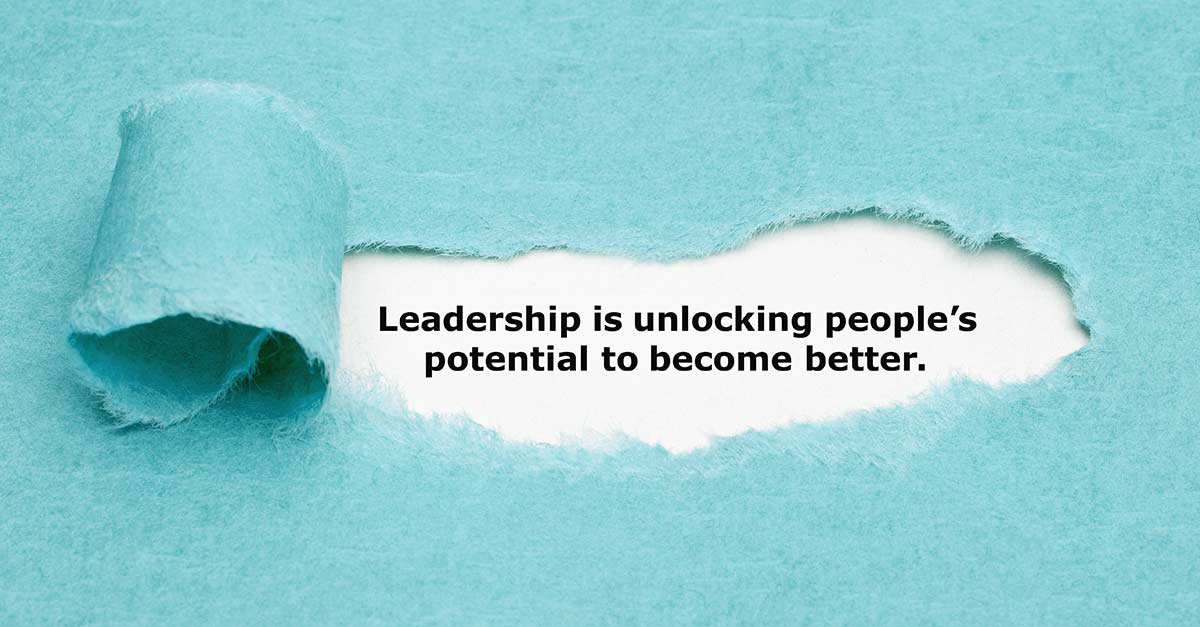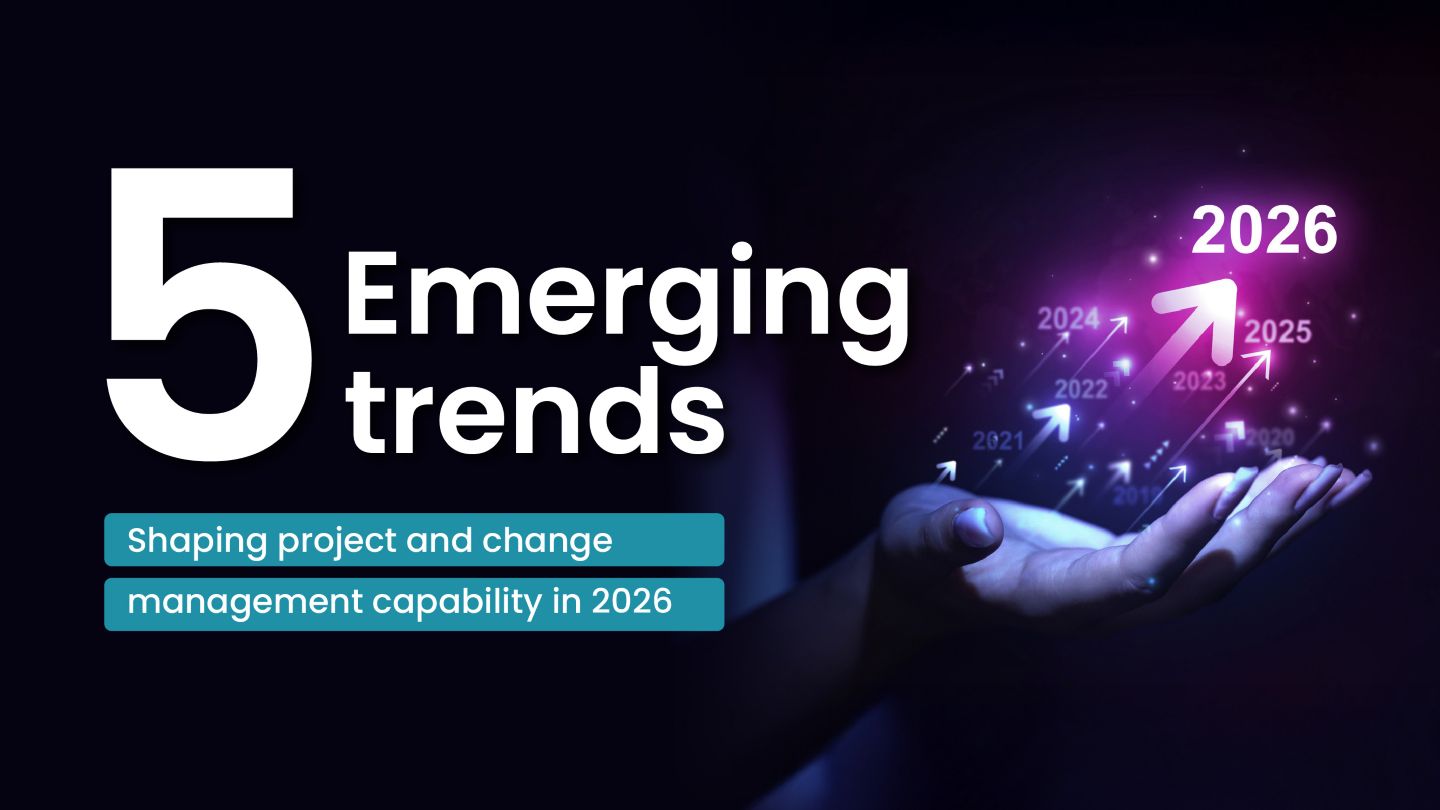Leading change: building your leadership and sponsorship capability

Traditionally when implementing change, organisations recognise the need to support their staff through the change process. But what do you need to fulfil your role as a leader or sponsor of change? Here, Dr Elissa Farrow, consultant and PM-Partners training facilitator, shares findings from her research on the non-technical skills for effective change leadership.
According to LinkedIn’s 2022 Workplace Learning Report, leadership and management training is the primary focus of L&D programs for 53 per cent of organisations. Continual upskilling to ensure relevant foundational knowledge is key. But as leaders and sponsors of change initiatives, it’s also important to be aware of the non-technical skills you need to effectively perform your role and support your staff.
Identifying where you stand on the following areas and ensuring you have the support and targeted programs in place to build these critical capabilities, should be a priority for 2023.
The top 3 non-technical skills for change leadership
Leading change is more than just making decisions around action and monitoring progress. The most impactful leaders know how to manage their own personal reactions to the change, as well has how best to support their staff going through the disruptions in their work culture and routine. Research conducted by Farrow (2022), found that the top three non-technical skills leaders need, include the ability to:
- Support themselves to best support their staff;
- Sensitively manage the emotional responses to change; and
- Inform, orientate, and engage.
Please note, in this article the term ‘leader’ covers team managers, directors, executives, senior executives and C-suite executives. Some of these positions will have a different level of function based on the level of seniority and specific role in the change process.
1. Leaders need support so they can best support their staff
Many leaders in the research indicated that they had to be self-reliant in the change process and self-manage their own personal experiences of the change process, or “just deal with it”. They acknowledged that in some organisational settings asking for assistance was seen as a sign of ‘weakness’ or ‘inadequacy’. At the same time, a number of participants noted that their role in change caused them great stress, particularly if staff were severely impacted.
As first responders, it’s vital to acknowledge that leaders also need a level of support to ensure they can fulfil their role in the change and feel supported in the change process. A good leader who acknowledges their own support needs, and has these positively addressed, will be more likely to fully support their staff moving through the change process. Just think of the classic airplane analogy: ‘put your own oxygen mask on before attempting to help others’.
Questions to ask:
- What self-care strategies do I have in place?
- Do I have what I need to fulfil my role in both the formal and informal change strategy?
The first point relates to the acknowledgement that leaders need to be self-aware and have a good level of resilience and capacity to change, which connects to the second area of skill development.
2. Leaders need to sensitively manage emotional responses
Many leaders interviewed did not have a psychological understanding of the change process – and, in most cases, they reflected that they had not been taught this in any formal education.
A common trait across participants’ organisational cultures, is that mental health or emotion is discussed at the point of the change process but is not a central part of a safe workplace culture. Emotional supports were typically more ‘staff focused’ with the leaders expecting to manage their own needs.
Given the anxiety-provoking impacts of the COVID pandemic and other global disruptions, the topics of psychological safety and wellbeing are being communicated more broadly. There is greater recognition of their importance in the workplace and, as a recent McKinsey report highlights, leaders have a critical role to play in this regard. As such, it’s vital that change strategies now incorporate ways of supporting the psychological safety and wellbeing of both leaders and staff.
To help people manage their responses as they move from one state to another, strategies need to centralise an acknowledgment of the past with building hope for the future. We do this in life with the birth of a new baby, or the death of a loved one – we acknowledge the past and join together in joy or grieving, and this assists us to collectively share and move forward.
Questions to ask:
- Do I understand my emotional and sensory reactions to the change?
- Do I have the skills to manage the behaviour response to my thoughts and feelings?
- Do I have a psychologically safe space to express my fears and desires?
Leaders need to be reflective and mindful of their own reactions to the proposed change and recognise that it is important to move to a more positive state where possible. Staff see your response, and this can have a significant impact on their trust and hope in the process.
3. Leaders need to inform, involve, and engage
Finally, effective engagement and communication is critical in any change process. Involvement by others in the change process means the creation of opportunities to participate.
Participation may not mean having the power to prevent the change or alter the strategy, but certainly leaders and staff need avenues to participate in decisions that affect them. Being informed and involved will bring benefits to the change process in the form of collaboration. Without this, you risk a lack of engagement with, or resistance to, the suggested change.
With any change – even if it is a movement of one building to another, staff need to be orientated to the reasons behind the change and the new environment they are moving to, and this change needs to be reinforced by a leader using effective communication.
Questions to ask:
- Do I have the information I need to fulfil my role in the change process?
- Do I have the skills to truly listen to the ideas and needs of my staff?
- Do I have the right amount and blend of engagement approaches in my change strategy?
Whatever your role as a leader in devising, enacting and reinforcing change, ensuring you’re well equipped to handle both your needs and the needs of your staff is critical to success. Answering the questions posed and considering your responses provides a useful starting point for identifying areas for improvement and uplift in 2023.
From there, building non-technical leadership and change sponsorship capability requires a package of supports. This includes current state assessments of capability and competency (such as emotional intelligence, understanding of personality and behavioural patterns) and then a gap analysis process that identifies area of learning and growth. For leaders, this is often supported by a mix of coaching, formal training, and safe senior group sharing and connection.
Where there are psychological or mental health concerns, relating to themselves or a staff member, leaders should look to their organisational counselling services (if available and often outsourced, e.g. Employee Assistance Services), or a doctor’s referral to a qualified specialist.
Interested in uplifting the sponsorship and broader leadership capabilities in your organisation? PM-Partners Effective Sponsorship Masterclass ensures leaders and sponsors are well equipped to adapt to changing circumstances and offers an interactive, personalised learning experience. For more information, contact our expert team or call 1300 70 13 14 today.
References: Farrow, E. (2022 pending) Leaders need support too – non-technical skills crucial for successful change leadership. Contact author.

About The Author
Dr Elissa Farrow
Consultant and PM-Partners training facilitator
Dr Elissa Farrow is a professional consultant, facilitator and researcher with both public, community and private sector experience spanning over the last 27 years. Her strengths lie in research, change and complex organisational portfolio, programme and project management. Elissa has established portfolio offices, centres of excellence and customised delivery and adaption approaches. She has grown the maturity of organisations through her people place centred advisory, coaching and facilitation style.






